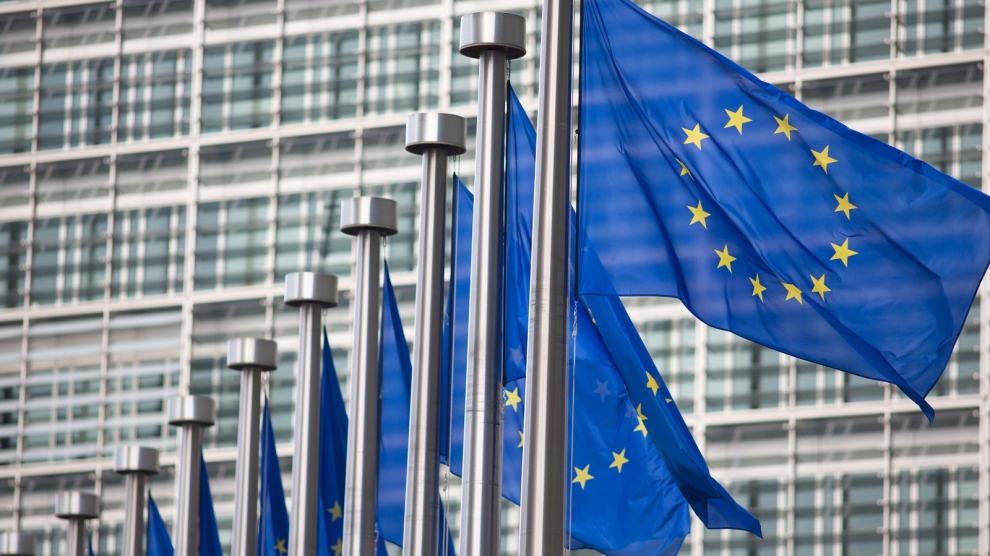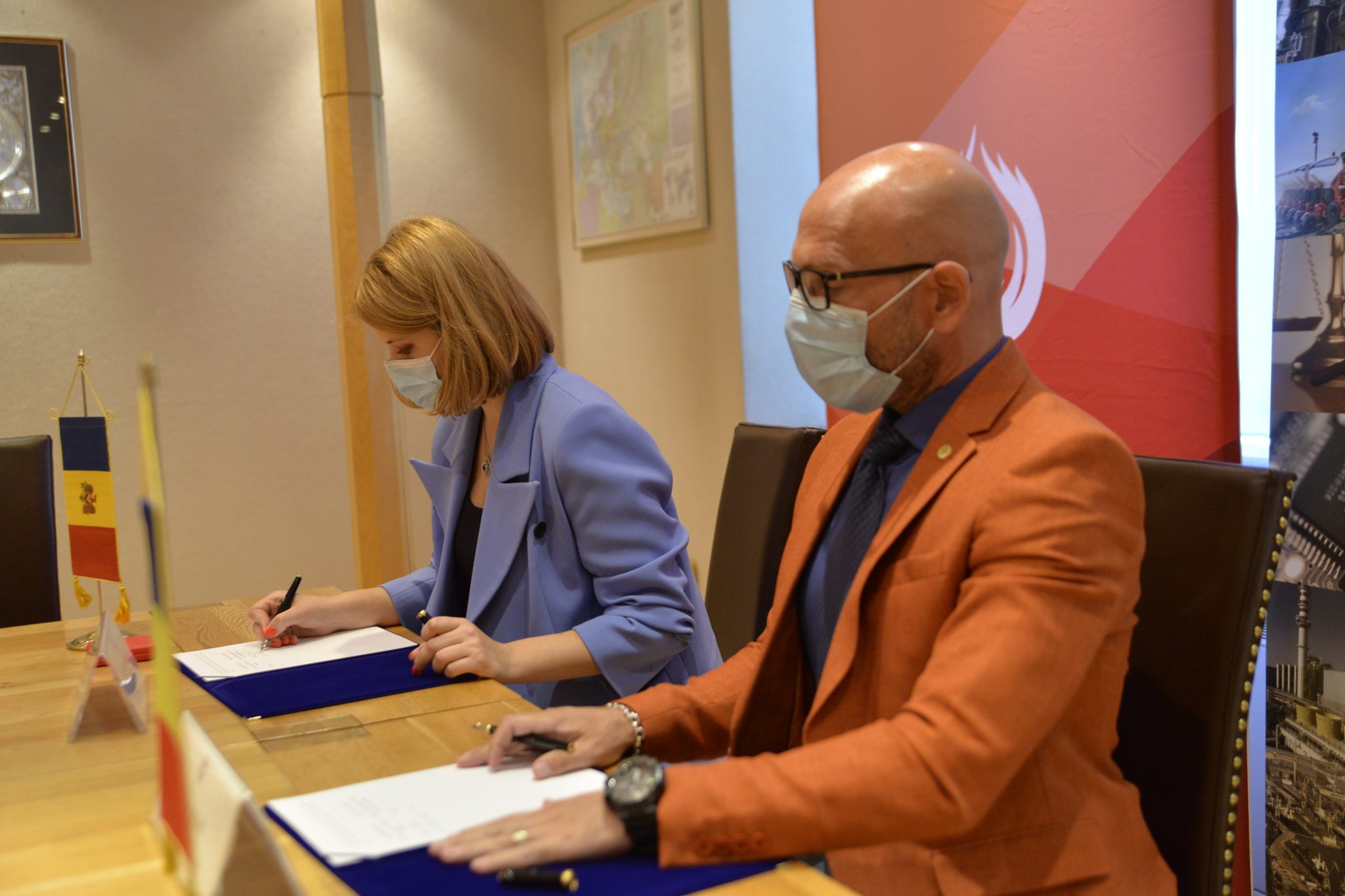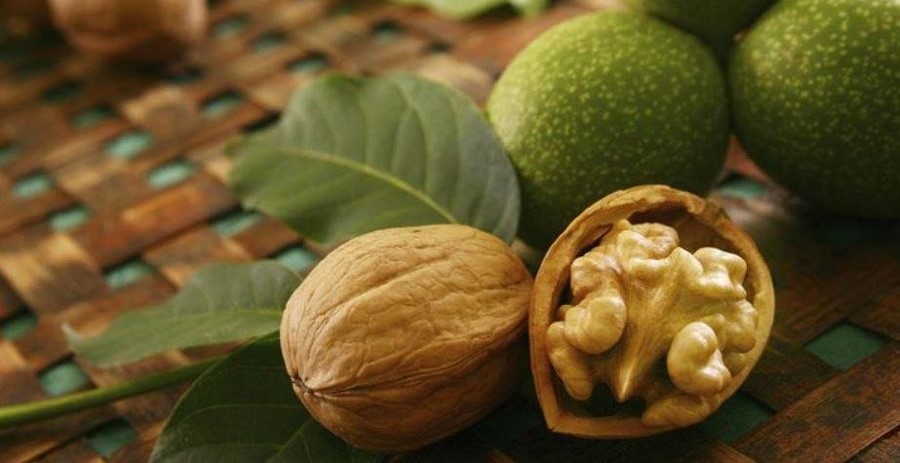Economy
Interview: Melanie Marlett, WB Country Manager for Moldova
Reading Time: 5 minuteshave been very impressed by Moldova and the Moldovan people. The people here are warm, friendly and kind not to mention hard-working and dedicated. I feel a real sense of patriotism here and a love o
– Since this is your first exclusive interview following your arrival in Chisinau we would like to ask you, as you look back at the past few months, what is your impression of Moldova and its people?
– I have been very impressed by Moldova and the Moldovan people. The people here are warm, friendly and kind not to mention hard-working and dedicated. I feel a real sense of patriotism here and a love of the people for their homeland. I feel very honored to have the opportunity to work here with such wonderful people.
– And what about the commitment and talent of Moldovans to work hard, because the modern world has not identified an alternative recipe for reaching better standards of living?
– From the macro perspective, the commitment and talent of Moldovans to work hard is proven by substantial progress in transforming Moldova from a Soviet planned economy to a dynamic small, open market economy, with a relatively quick recovery and very significant reduction in poverty following the regional financial crisis of 1998; resilience of the Moldovan economy to the most recent shock of world energy price increases and at the same time temporary loss of access to traditional markets. On top of that, Moldova is one of the world leaders in terms of remittances / GDP ratio. On personal level, I have already met many Moldovans and most of them impressed me by their desire and commitment to engage in the development process and to achieve tangible results as soon as possible. And I was very glad to find out that some of those who received good quality education in developed countries and having had many opportunities there still came back home to work in Moldova and contribute to its economic prosperity.
– Now let us ask you the same question about Moldova’s political, economic and financial class – your opinion about their capacity and desire to provide qualified work?
– I am still new to the country and may not have enough knowledge to be able to make a solid judgement about it. Our immediate counterpart is the Government of the country and so far we have been pleased with the level of cooperation and commitment on its part. Now, we are at the point of completing our country strategy for Moldova covering 2004-2007 and we can say that, overall, the implementation of Bank supported program has been very good and we can move forward with the preparation of our next Country Strategy covering 2008-2011 based on the country’s new National Development Plan (NDP). I can say we are very pleased that the NDP was developed in a very participatory and consultative manner and therefore represents the views of many stakeholders.
– And now, to sum up the previous three questions, why do you think Moldovans can’t find work in their home country, thus being forced to look for opportunities overseas, with all the resulting negative social consequences of migration?
– I would not generalize. There are examples of Moldovans who actually found work here and started their own business. The existing situation is not a result of absence of job offers on the market (at least not only). It is more due to the fact that there may be greater opportunities in some of the EU countries than those existing currently in Moldova. This does not mean that such a situation will last forever. Countries which are now EU members and are economically strong have gone through similar processes in the past. The situation can change based on economic reforms in the area of business environment, social policies, collaboration with EU, etc. Policy makers in Moldova probably should also take into account that migration is a widespread global phenomenon. People currently migrate even from more developed countries in search of better opportunities. And there are examples of massive migration from other European countries like Sweden at the beginning of 20th century or Ireland after the World War II. There was even a joke in Ireland saying that: "Last Irish leaving the country, please switch off the light". One can hardly think of this looking at these countries now. Today, they serve as destination countries for migrants.
– Moldova is a world leader, it seems, in terms of the volume of remittances as share of the GDP. What is there more for the Moldovan economy in this phenomenon: therapy or dynamite? How much truth is it in the frequent statements that remittances provide for a permanent preservation of the current model of governance in the Republic of Moldova?
– Migration could have a positive impact on the economy if remittances and money earned outside could serve not only the consumption side but also be invested in setting up small businesses, creating jobs and, in the final instance, contributing to economic growth. Incentive mechanisms could be created for Moldovans who have migrated to gain skills outside of Moldova and come back and invest inside Moldova. Improving the investment climate for Moldovans to invest in their own country will be important.
– Large financial resources are currently directed towards Moldova, including through the World Bank, which are expected to increase in the future. How much absorption and efficient usage capacity does Moldova have, what are the donors’ guarantees that money will not be wasted or end up being stolen, as it has happened in other parts of the world?
– Every single project is appraised before the World Bank board of directors approves it. During this appraisal the aspects of usage capacity and efficiency are thoroughly analyzed. In addition, Financial Management (controls, accounting, reporting, auditing) and Procurement (procurement procedures to ensure competition) arrangements are assessed and if inadequate, safeguards conditions are put in place so that the funds are used for the purposes intended. These measures provide reasonable assurance that funds will be properly used. In addition, the World Bank is supporting capacity development of the public sector through a Public Financial Management operation as well as through a Multi-donor Trust Fund for Public Administration Reform. We are also working with other development partners to support the capacity development of the Court of Accounts.
– How do you assess now, after years of implementation, the results of the Economic Growth and Poverty Reduction Strategy, which was supported by international donors’ financial assistance, including the World Bank?
– Mostly positively. Overall macroeconomic stability was maintained. Economic growth continued. Government understanding of strategic prioritization process has improved considerably. Government ownership has been strengthened, which is confirmed by recent process of development of NDP with strong leadership of the government. At the same time, there is no room for complacency. That is why we need to continue our collaboration with Moldova in the context of NDP.
– In this context, do you think the National Development Plan (NDP), which is replacing the EGPRSP and for which assistance was requested from the donor community, including the Bank, has more chances of being successfully implemented?
– Yes. I believe that the NDP will be successful and that the desired outcomes will be achieved. The World Bank and other development partners are committed to support the NDP in a coordinated and collaborative manner.
– How would you assess the state of the Moldovan economy at this stage and what are its short-term prospects in economic terms?
– Despite the challenging transition period, I believe that the Moldovan economy is moving in the right direction. Short term prospects are promising due to several factors, including proximity to the EU and prospects of collaboration of with the EU in the implementation of the EU Action Plan. Even with significant external shocks, e.g. wine export ban to Russia, high gas prices, and the drought, the Moldovan economy has shown resiliency, with annual growth likely to be approximately 6 percent this year. Export and investment growth has been strong. So, overall, I am quite optimistic.
– If representatives of prestigious institutions like the World Bank were allowed to respond to gossips, how would you comment, for example, the existing rumors that almost the entire Moldovan economy is under the control of circles closely affiliated, politically or family-wise, with the top leadership of this country?
– The Bank is not an institution which operates based on gossip. I will therefore refrain from addressing this question.
– Would you like to celebrate Christmas in Moldova?
I look forward to celebrating many holidays here in Moldova. I want to experience the life and culture of Moldova to every extent possible. I will spend December 25 in Vienna and January 7 in Moldova. I am looking forward to it. I am especially grateful for the snow we are having here now. I like having a snowy Christmas!
Economy
Moldova will receive a disbursement of 36 million euros as part of the the Economic Recovery Plan

This week, the European Commission approved the disbursement of 36 million euros in grant money for the Republic of Moldova. The announcement was made by Deputy Director-General for Neighbourhood Policy and Enlargement Negotiations at the European Commission, Katarina Mathernova, who paid an official visit to the Republic of Moldova between September 13-15, together with Managing Director for Russia, Eastern Partnership, Central Asia, Regional cooperation and OSCE, at the European External Action Service, Michael Siebert.
The EU officials had meetings with President Maia Sandu, Minister of Foreign Affairs and European Integration, Nicu Popescu, Speaker of Parliament, Igor Grosu, Prime Minister of the country, Natalia Gavrilita, as well as key representatives of Government, international financial institutions and the civil society, according to a press release issued by the Delegation of the European Union to the Republic of Moldova.
Beside such topics as the EU-Moldova relations and prospects, the priorities of the reform agenda of the new Moldovan Government, preparations for the Eastern Partnership Summit at the end of the year and the Transnistrian conflict settlement, the officials also discussed the EU assistance in support of reforms and the Economic Recovery Plan for Moldova, which was announced in June with a total EU support of 600 million euros over the next 3 years.
“The first measures under the Economic Recovery Plan will shortly materialize, with the expected disbursement of 36 million euros in grant money under budget support programmes to support the authorities’ efforts to fight against the consequences of the pandemic. Moldova can count on EU’s assistance on its path to reforms and to recovery, bringing tangible results to citizens,” Katarina Mathernova stated.
The plan is based on assistance provided by the European Union through various bilateral and regional instruments, aiming to mobilize the funds in the form of grants, loans, guarantees and macro-financial assistance.
“The Economic Recovery Plan for the Republic of Moldova involves much more, not just this financial support provided immediately. It must help digital transformation, strengthen infrastructure, energy efficiency, education and support small and medium-sized enterprises,” the EU official also said.
As Prime Minister Natalia Gavrilita informed, “The Economic Recovery Plan and the 5 flagship initiatives for Moldova in the Eastern Partnership will directly contribute to the reform and consolidation of institutions, stimulate long-term socio-economic development, bring direct benefits to citizens, and unleash new economic opportunities through promoting the green agenda and digitization. Small and medium-sized enterprises (SMEs) have been hit hard by the crisis. Promoting and diversifying access to finance and reducing collateral requirements will be essential in supporting economic operators. We are grateful to the EU partners who will launch two programs to support 50 000 independent Moldovan SMEs to adapt to the new conditions.”
President of the Republic of Moldova, Maia Sandu, welcomed the decision of the European Union to disburse about 745 million lei in grant money, as the official page of the President’s Office announced. “EU support comes after a long period of freezing of European assistance, caused by former governments. We managed to relaunch the political dialogue with the European Union and resume financial assistance. The Republic of Moldova is gradually regaining the trust of its strategic partners. This European support is also a signal of encouragement for the new Government team in its commitment to clean up the institutions, fight corruption and launch development programs in the country,” said Maia Sandu.
Photo: unknown
Economy
Romania and Moldova signed a partnership memorandum pledging to cooperate in promoting their wines

The Chamber of Commerce and Industry of Romania (CCIR) and the National Office for Vine and Wine (NOVW) of the Republic of Moldova signed, last week, a memorandum of cooperation on organizing joint promotional activities in the markets of common interest, as the CCIR announced.
China, Japan or the USA are just some of the markets targeted by the Romanian and Moldovan institutions. The memorandum also involves advertising activities for wines from common indigenous varieties, promoting the oeno-tourist region, developing a tourist route in the two states, exchange of experience, study visits, and mutual support in identifying new export opportunities. “We are very confident that this collaboration between our organizations will lead to sustainable economic growth and a higher degree of well-being among Moldovans and Romanians,” claimed Deputy Secretary-General of CCIR, Bogdan Visan.
On the other hand, Director of the NOVW, Cristina Frolov, declared that no open competition with Romania is aimed at the governmental level of the Republic of Moldova. “This request for collaboration is a consequence of the partnership principle. Romania imports 10-12% of the wine it consumes, and we want to take more from this import quota. Every year, the Romanian market grows by approximately 2.8%, as it happened in 2020, and we are interested in taking a maximum share of this percentage of imported wines without entering into direct competition with the Romanian producer,” the Moldovan official said. She also mentioned that Moldova aims at increasing the market share of wine production by at least 50% compared to 2020, and the number of producers present on the Romanian market – by at least 40%.

Source: ccir.ro
**
According to the data of the Romanian National Trade Register Office, the total value of Romania-Moldova trade was 1.7 billion euros at the end of last year and over 805 million euros at the end of May 2021. In July 2021, there were 6 522 companies from the Republic of Moldova in Romania, with a total capital value of 45.9 million euros.
The data of Moldova’s National Office of Vine and Wine showed that, in the first 7 months of 2021, the total quantity of bottled wine was about 27 million litres (registering an increase of 10% as compared to the same period last year), with a value of more than one billion lei, which is 32% more than the same period last year. Moldovan wines were awarded 956 medals at 32 international competitions in 2020.
Photo: ccir.ro
Economy
Moldova’s hope to be a top walnut exporter and its main difficulties

The Republic of Moldova has perfect weather conditions for growing walnut trees, that creating a great potential of walnut production and trade, especially on international markets, where the demand is way higher than the product’s supply. National and international experts believe that the country’s walnut production industry is on the verge of important transformations, which could lead to increased yields, quality and competitiveness worldwide.
According to authorities, Moldova exports 34-35 thousand tons of walnuts in shell, which is about 7% of the total export of fruit and 5% of the total export of horticultural products. The export value is assessed as being $120 million, that being 57-60% of the total fruit export value and about 50% of horticultural export value. Most of walnut crops are exported to the EU countries, such as France, Germany, the Netherlands, Romania and Austria. The country’s exports were among the world’s top 10 when it comes to the highest dollar value of the product during 2020.
Viorel Gherciu, Minister of Agriculture and Food Industry, pointed out that the production in the domestic walnut industry has increased by 55% in the last five years, which ranks Moldova among the main producers in the world.
“The biggest opportunity for this industry is that we are in the geographical proximity of the largest walnut import area in the world, which is the European Union, with almost 40% of total imports in the world. We are on the EU border, with privileged relations, with an Association Agreement. We already enjoy a good relationship in working with European importers, they trust our processors. A very close collaboration has been created and this is, in fact, the guarantee for those who invest in the area,” claimed the president of the Walnut Producers Association, Oleg Tirsina.
The data provided by the National Bureau of Statistics show that there are 34.7 thousand hectares of walnut plantations in the country. 20.90 hectares are represented by orchards. 75% of planted orchards are formed of old varieties trees. 30-35% of the exported production comes from orchards, the rest comes from individual farmers and plantations along the roads. This means that the quality of walnut production is not at its maximum potential. Developing commercial plantations through orchards modernization and extension of walnut varieties would provide double yield and better quality, experts say.
Governmental support in the form of subsidizing solutions, foreign investments and credit options are indispensable for the industry development. One of the financing options is the credit line of the European Investment Bank Project. Since 2016, 15 producers and processors of nuts, almonds and hazelnuts have benefited from these loans with the total amount of investments worth 8.7 million euros. A further extension of the project would provide another 60 million euros for the modernization of the horticultural sector in general and for harvesting organic walnuts in particular.
Photo: heymoldova.com





















